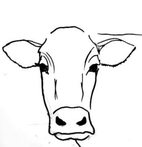 What with a pandemic & people losing their lives & most of us sheltering in place, it's fair that it may be tough using the word happy, so this week we’ll ponder some happiness synonyms gleaned mostly through surfing of the synonym sections in my 1959 Webster’s New World Dictionary of the American Language. Most modern English speakers embrace the second meaning of happiness: the state of pleasurable content of mind which results in success or the attainment of what is considered good. Its synonyms reflect these shades of meaning: gladness, implies a very exultant feeling of joy cheerfulness, suggests a steady display of bright spirits or optimism joy, implies great elation expressed in demonstrative happiness, with joyousness suggesting a matter of usual temperament & joyfulness having been caused by a temporal event. pleasure is an agreeable feeling of satisfaction delight suggests a high degree of obvious pleasure, openly & enthusiastically expressed enjoyment implies a quieter feeling of satisfaction Though it wars with the sensibilities of the modern speakers, the first meaning of happiness in most dictionaries is good fortune or luck in life or in a particular affair; success, prosperity. Lucky implies a favorable or advantageous occurrence, unexpectedly & by chance. Lucky’s synonyms include: fortunate, used for more serious matters of unexpected fortuity. propitious means full of promise, good or favorable auspicious suggests something good and encouraging felicitous suggests an appropriate or suitable fit providential suggests the intervention of God or some higher entity in bringing about favorable circumstances Good readers, though the word happy might not appropriately describe recent events, do any of these other words apply to an experience you had this week? My thanks go out to this week’s sources: OED, Etymonline, & Wordnik,& the 1959 Webster’s New World Dictionary of the American Language
2 Comments
 I’ve always had a fondness for the word pate, even before mine was exposed to the elements. My attraction to the word pate includes the words twitterpated and addlepated, so I’m celebrating with a consideration of these two words and their synonyms. Addlepated came to English in the 1850s along with its cousin addlebrained. Though addle initially meant liquid filth or urine, in time it came to also mean putrid, empty, vain or idle. By 1706, addle added to its quiver of meanings confused, muddled or unsound. It’s this 1706 bunch of meanings that brought about addlepated and addlebrained. A near-synonym of addlepated is puddingheaded, which showed up in English in 1851, referring to an amiable, yet stupid person. Pudding, the first bit of this compound word, came to English either through West Germanic languages meaning to swell (related to pudgy), or through Latin & French, referring to sausage (related to purse). The 1850s also gave birth to muddleheaded. The word muddle came to English in the 1590s, meaning literally to bathe in mud, & figuratively, to destroy clarity. It appears to have come from the Dutch word moddelen, which means to make water muddy. Twitterpated, on the other hand, has more to do with the heart than with the head. Twitterpated first appeared in the 1942 Disney classic, Bambi. It appears that screenplay writer Larry Morey coined the word, adding pate to twitter, which means in tremulous excitement or romantically infatuated. He may have been inspired by the word flutterpated, born in 1894 & of the same meaning. A wonderful two-syllable synonym for twitterpated is agog, which made its way from French to English as early as the 1400s, meaning heated with the notion of enjoyment or longing. A second two-syllable synonym is dotty, which came to English in the 1400s in the form of dottypolle (polle meaning head – the same root from which tadpole comes). It appears to be based on the word dote, and means silly with desire. Our final two-syllable synonym for twitterpated is smitten, which meant struck hard or afflicted with disaster when it came to English in the 1200s, but a mere four centuries later picked up the meaning inspired with love. I suppose some folks might claim the old and new meanings are synonymous, though I am fortunate to have had more positive smitten experiences. Dear readers, any thoughts on all this? Any favorite terms from the collection above? Please leave a note in the comments section. My thanks go out to this week’s sources: OED, Etymonline, Full TV Movies & Wordnik  As noted in last week’s post, we employ euphemisms for myriad reasons, usually to make the topic of conversation less offensive to delicate ears. Though we tend to think of euphemisms as tools of the squeamish Victorians, modern. euphemisms abound. During the Vietnam War, reporters discussed loss of life in terms of soldiers or men. Today, the less-human term troop is in usage. What my grandmother called rubbish, my generation called trash or garbage. Today it has become waste. We hauled that historic rubbish & trash off to the dump. Today’s waste ends up in the landfill (& in some communities, the transfer station). How very sanitary. Yesterday’s tombstone is today’s grave marker. Yesterday’s life jacket has become a personal flotation device. Yesterday’s looting & stealing can now be called self-provisioning. But euphemisms started long before the modern day, or even the Victorian era. The word cemetery (which came to English from Greek in the late 1300s) is actually a euphemism for the more honest word graveyard. Cemetery means sleeping place – a Greek term first applied to graveyards sometime in the first century. Euphemisms can also be tools for the advancement of capitalism. Sales of what was once called Patagonian toothfish skyrocketed when it became Chilean sea bass. The same thing happened when muttonfish was re-named snapper and when the dolphin fish took on the moniker mahi mahi. And imagine the complete surprise of fish salespeople all over the world when the newly named orange roughy sold like crazy. Whyever were sales so low with its old name, slime head? Good readers, go forth and euphemize (and if you have anything to say about all this, please leave a comment or two). My thanks go out to this week’s sources: OED, Etymonline, English Word Information,Ralph Keyes’ Euphemania, & Wordnik  Years ago I worked with a student teacher who – upon having to use the restroom – would say, “Excuse me. I have to euphemize.” Though this post doesn’t look at all the gloriously creative euphemisms for using the restroom (this sentence contains one of the mildest ones available), big thanks to student teacher, Peter Sweeny. The word euphemism first arrived in English in 1650. The original Greek form meant to speak with fair words, or good speech. It comes from the Greeks’ understanding that speaking some words brought poor fortune. For instance, it wasn’t considered wise to mention the Furies (known for their heartless punishments of unavenged crimes) by name. Instead, they might be referred to as the Gracious Ones. In modern tales, we see this same phenomenon in JK Rowling’s Harry Potter series, in which the stunningly evil antagonist is spoken of as he who must not be named. Ah, the euphemism: humanity’s tendency to: - say what we don’t mean in hopes of avoiding the possibility that we might be understood, - communicate to an intended audience while keeping others “on the outs”, or - avoid being offensive while saying something, well, offensive. Some fine euphemisms for drinking include: -to lift an elbow -to have a snort -to fall victim to barley fever -to take one’s medicine -to enjoy a wee drop -to feed one’s kitty -to get a snootful -to enjoy a nip -to eat the pudding bag If a drinker over-imbibes & we intend to criticize, we might say s/he is: -piffled -schnozzled -pie-eyed -smashed -tanked -slopped -frazzled -het-up -blotto -noggy -stewed to the gills -under the table Or when we’d like to be less critical, we might say s/he: -is a little squiffy -is impaired -is in a difficulty -is in a rosy glow -is in a muddle -is making a night of it -is making a trip to Baltimore -is a bit ruddy-faced -is sotally tober And the morning after a bit of liquid debauchery, we might say s/he: -has flu-like symptoms -is under the weather -is suffering the wrath of grapes -has a Dutch headache -has a hair-ache -has the brown bottle flu -has an inexplicable headache -has hamster mouth -is wearing loud shoes Do any of you have a favorite drinking euphemism to add to the pot? Please do so in the comments section. My thanks go out to this week’s sources: OED, Etymonline, Drunktionary, Wordnik, & Ralph Keyes’ Euphemania  Here we are in the middle of the Corona Virus, many of us staying home -- some happy about being home, others not so happy. Most of us recognize the relativity of a term like happiness. Oddly, very few of us ever apply the primary meaning of the word happiness. Most modern dictionaries list the first meaning of happiness something like this: good fortune, luck or prosperity. This leaves the meaning depicted here, gladness, delight or pleasure, in the not-so-coveted place of the second meaning. So what definition of happiness was in the minds of the framers of the Constitution when they included in a citizen’s “certain unalienable Rights” the pursuit of happiness? The Oxford English Dictionary would suggest that in the mid-1700s three definitions were in effect, in this order: 1. Good fortune or luck in life or in a particular affair; success, prosperity 2. The state of pleasurable content of mind which results in success or the attainment of what is considered good 3. Successful or felicitous aptitude, fitness, suitability or appropriateness; felicity Given the framers’ collective focus on business brought on by their struggles with King George, it seems a reasonable argument that they may have been applying that first meaning – a meaning very few contemporary English speakers apply to the word happiness. We modern English speakers haven’t lost that meaning altogether, as we do use hap- words that relate back to the idea of prosperity, luck, or good fortune: happenstance perhaps haphazard happen mishap hapless And might happy-go-lucky actually translate to something more like luck-come-luck-go? Even the first two meanings of the simpler word happy in the 1700s were: 1. Coming or happening by chance; fortuitous 2. Having good “hap” or fortune, coming by fortune; favored by lot, position or other external circumstance All this connection to luck and fortune has to do with the roots of happiness. The word comes from the Old Norse word happ, meaning good luck, which came from a Proto-Indo-European word meaning to suit, fit or succeed. So does your modern understanding of happiness lean toward good fortune & prosperity, or is your happiness a pleasurable & felicitous content of mind? Please let me know in the comments section. And are you mostly happy about staying home these days, or mostly not-so-happy about it? My thanks go out to this week’s sources: OED, Etymonline, US History.org & Wordnik  Last week we took a look at compound words first written down by Myles Coverdale, who gave the world its first complete English Bible. This week we’ll take a look at a few other words for which Coverdale is given credit. Though the word anoint was used in English as early as the 1300s, it simply meant smeared on. Coverdale was the first to use anoint in writing in its spiritual sense of choose or consecrate. Before this, it seems anoint was a word used exclusively to refer to medical treatments involving smearing a substance over a compromised area, like – oh, let’s say – a skin condition. That brings us to the word leprosy, which appears to have been born in the Coverdale Bible. The Hebrew & Latin words in earlier versions were less specific, & could be translated as broadly as skin diseases, but Coverdale chose to represent those general skin diseases by Anglicizing the Greek word lepra, which meant scaly, but was also used to refer to the very specific skin disease now known as Hansen’s disease (named after the researcher who discovered the bacillus that causes the condition). Though the original Hebrew of the Old Testament employed a word meaning resin, when it came to the ____ of Gilead, Coverdale chose the word balm, giving a common term of the time two new meanings. In the 1500s, the word balm was used to define an aromatic mixture of resins & oils. Coverdale’s use of it gave birth to both the physically soothing effect of things that smelled good, & the idea that a degree of spiritual enlightenment could bring about a similarly pleasing effect. Swaddling was born of the Old English word swathian, to bind or bandage. One of the customs of the centuries pre-dating Coverdale involved binding infants’ limbs, as it was believed that not doing so could lead to deformity (we humans come up with some pretty wonky ideas, don’t we?). It’s unclear whether Coverdale imagined the baby Jesus’ limbs tightly bound or whether the term swaddling clothes had been generalized by then to refer to a baby’s blanket. Though many might guess that the more violent meaning of the word lick was coined by the likes of Mark Twain, linguists attribute it to Coverdale. To lick, meaning to annihilate, defeat or beat, first appeared in Coverdale’s translation of the Bible. Good readers, had any of you wondered about swaddling, lick, leprosy, balm or anoint, or had these words escaped your curiosity? Please leave a comment. My thanks go out to this week’s sources: OED, Etymonline, English Bible History & Wordnik  In 1535, Myles Coverdale published the first-ever English translation of the Bible (predating the King James version by seventy-six years). Even though most etymologists believe many of the compound words Coverdale was the first to write down were in common usage, the commoners using them weren’t bothering to write them down, so the following words are known as Coverdale words: fleshpot – meaning luxuries regarded with envy, though the literal meaning was pots in which flesh was boiled. One could argue for either meaning in the Exodus verse in which the word appears. noonday – a simple compound of noon and day, from Job lovingkindness – I’ve always associated this word with my mother, known in the family as Muz. She strived to live this word & most who knew her would agree that she succeeded. Lovingkindness appears in Psalms. bloodthirsty – not a word one would expect in Psalms, but predictability is not the Old Testament’s strongest suit. uproar – meaning to move, stir or shake, or a revolt or commotion (appearing in Kings, Matthew & Acts), from the German aufruhr, meaning tumult or riot, & definitely not related to the word roar, which came to English through Old English & Dutch from Sanskrit ragati, meaning barks. sackbut – from the book of Daniel, sackbut came from the French saquebute, a bass trumpet with a trombone-like slide. Interestingly, the instrument bore a striking resemblance to the saqueboute, a hooked lance-like weapon of northern France, used in battle to pull riders from their horses. Apparently Coverdale incorrectly used the term in Daniel to refer to Aramaic instruments known as sabbekha, a small triangular harp. I’m often in the minority when it comes to religious/spiritual issues, but it seems to me that a joyful noise is a joyful noise, no matter the nature of one’s sackbut. Of course, the question remains whether it was the French or the Aramaic who first coined the phrase, Does this fugue make my sackbut look big? Any responses about Myles Coverdale or these words attributed to him? Please leave your thoughts in the comments section. My thanks go out to this week’s sources: OED, Etymonline, English Bible History & Wordnik  Lately I've been pondering whether nearly everyone in the news is a fool, or whether I'm the fool for spending my timer reading about them. Fool has been around in English for a long time. The noun form of fool showed up in the 1200s & the verb form appeared about a century later. It came from fol, an Old French term for idiot, rogue, jester, or madman. The French got it from the Latin term follis, literally meaning leather bag or bellows & figuratively meaning empty-headed person or windbag. Though one might imagine the antics of court jesters inspired the word, centuries of jesters gave their collective all before the English term fool was applied to their ilk in the late 1300s. In 1680 the term April fool was born. On All Fool’s Day people were sent on “false errands” (did those Brits have a crazy sense of humor or what?). Interestingly, the Norse had a similar celebration known as April Gowk (gowk meant cuckoo in Norse). Some words that share fool's root include: follicle fun fond bold (no fooling) Though most of the following words have multiple meanings, they are all also synonyms for fool: gorm berk schmoe schmuck schlemiel simpleton fop muggins patch putz moppet dodo sot nincompoop gawp gowk ninny coot naïf What have you to say about all this etymological tomfoolery? My thanks go out to this week’s sources: Merriam Webster, OED, Etymonline, & Wordnik  The Old English word cow came through Proto-Germanic tongues from Proto-Indo-European. Most etymologists believe cow is an onomatopoeic term mimicking the lowing of cattle. Cow-related slang & idioms abound: Cow-feed is a British Armed services term meaning salad or raw vegetables. Since 1955 the term cowie has referred to a western film. British and American cyclists refer to handlebars as cow-horns. Cow-pat, cow-pattie & cow pie arrived in the language in the 1950s, meaning a single dropping from a cow, calf, or bull. Cowyard-confetti & cow-confetti are Australian terms born in 1920 & 1930 respectively, meaning nonsense. I think of these terms as the kinder, gentler form of the crasser, tangentially cow-related term bullshit. In cricket, the terms cow-corner & cow-shot refer to an oft-ignored segment of the field, & a shot into or through that area. This was born of the thought that cows could graze there unmolested during a game. Though cowboy is most likely derived from caballero, it includes the letters c-o-w so here's some cowboy information: cowboy has many meanings: a bow-legged man, a minor criminal given to violence, a know-it all, a young, inexperienced driver, & someone unqualified or irresponsible. Since 1920, members of the Royal British Navy have referred to baked beans as cowboys (synonyms include prairie rash & yippee beans). In Canada, a farmer’s straw hat can be referred to as a cow’s breakfast. Which of these cow-related terms are new to you? Any other thoughts regarding the use or abuse of the word cow? My thanks go out to this week’s sources: OED, Etymonline, The New Partridge Dictionary of Slang & Unconventional English, & Wordnik  This week we’ll bark up the tooth tree. Big thanks again to my dear friend River, who inspired last week’s eyetooth post in the first place. Tooth gave birth to all sorts of great words & idioms. Sweet-tooth showed up as early as the 1300s. Bucktoothed showed up in the 1540s. Snaggle-toothed appeared in the 1580s. To be long in the tooth appeared in 1841. The fabric we call houndstooth showed up in the early 1900s. The word toothache has been in use since Old English, toothpick showed up in the 1400s, & toothbrush found its way into the language in the 1600s. Tooth has been with us since Old English, It was born of the Proto-Indo-European word dent-. Yes, both dental & tooth have the same root, but along the way different languages & cultures heard the sounds differently & morphed them differently, ending up with words that don’t sound vaguely related. Given tooth’s roots (sorry about that), it should be no surprise that the following words are related to tooth: trident (1400s) three teeth indent (1400s) to give something a jagged or toothed appearance dandelion (1400s) literally tooth of the lion indenture (1400s) of the raggedy edge – when the practice of indentured servitude began, the contract between “employer” & “employee” would be ripped in half in a toothed or jagged fashion, each piece going to one of the parties. Years later, the two pieces were compared as proof of identity so that the contract’s agreement could be fulfilled. dentist (1700s) tooth person periodontal (1800s) around the teeth orthodontia (1800s) straight & proper teeth denture (1800s) set of teeth mastodon (1800s) Okay, so we usually dig up bones & teeth of old critters, right? Apparently each mastodon molar was equipped with a central bump, & apparently our intrepid, lonely, mostly male paleontologists were a bit too lonely (& worked up) so voila! breast-teeth. rodent (1800s) you don’t want to know the details, but they have to do with scraping, red, & teeth al dente (1900s) to the tooth Tusk appears to have made its way to Old English through Old Frisian, also from the Proto-Indo-European root dent-. What toothsome etymology do you find most worth of biting into? Please leave a comment. My thanks go out to this week’s sources: Merriam Webster, OED, Etymonline, & Wordnik |
I write for teens & tweens, bake bread, play music, and ponder the wonder of words in a foggy little town on California's central coast.
To receive weekly reminders of new Wordmonger posts, click on "Contact" & send me your email address. Archives
November 2023
|


 RSS Feed
RSS Feed